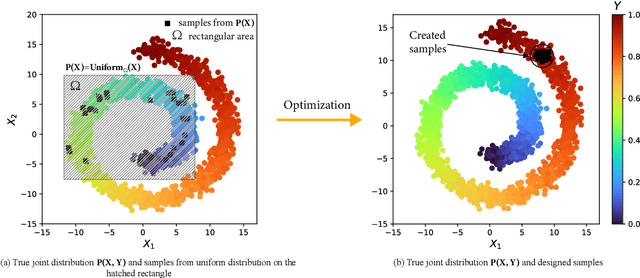Nikita O. Starodubcev
Generative Design of Physical Objects using Modular Framework
Jul 29, 2022



Abstract:In recent years generative design techniques have become firmly established in numerous applied fields, especially in engineering. These methods are demonstrating intensive growth owing to promising outlook. However, existing approaches are limited by the specificity of problem under consideration. In addition, they do not provide desired flexibility. In this paper we formulate general approach to an arbitrary generative design problem and propose novel framework called GEFEST (Generative Evolution For Encoded STructure) on its basis. The developed approach is based on three general principles: sampling, estimation and optimization. This ensures the freedom of method adjustment for solution of particular generative design problem and therefore enables to construct the most suitable one. A series of experimental studies was conducted to confirm the effectiveness of the GEFEST framework. It involved synthetic and real-world cases (coastal engineering, microfluidics, thermodynamics and oil field planning). Flexible structure of the GEFEST makes it possible to obtain the results that surpassing baseline solutions.
Surrogate-Assisted Evolutionary Generative Design Of Breakwaters Using Deep Convolutional Networks
Apr 07, 2022



Abstract:In the paper, a multi-objective evolutionary surrogate-assisted approach for the fast and effective generative design of coastal breakwaters is proposed. To approximate the computationally expensive objective functions, the deep convolutional neural network is used as a surrogate model. This model allows optimizing a configuration of breakwaters with a different number of structures and segments. In addition to the surrogate, an assistant model was developed to estimate the confidence of predictions. The proposed approach was tested on the synthetic water area, the SWAN model was used to calculate the wave heights. The experimental results confirm that the proposed approach allows obtaining more effective (less expensive with better protective properties) solutions than non-surrogate approaches for the same time.
 Add to Chrome
Add to Chrome Add to Firefox
Add to Firefox Add to Edge
Add to Edge